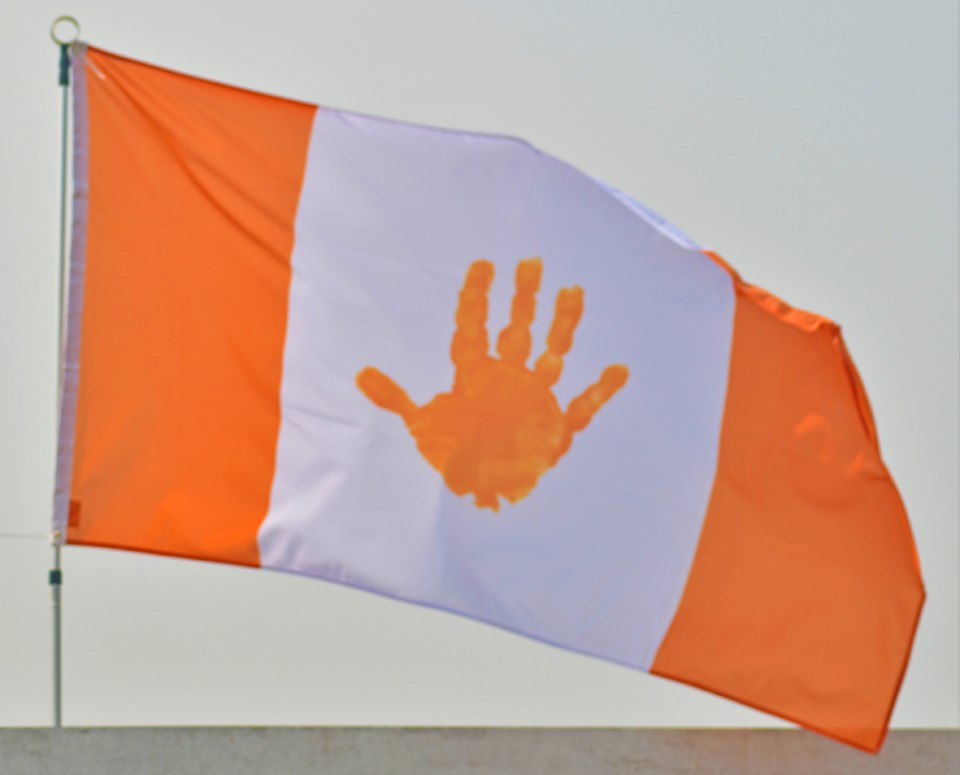SASKATOON — Children and Indigenous Peoples rights advocate Mary Ellen Turpel-Lafond said comments made by some members of the Catholic clergy and its leaders in downplaying damage brought by the Canadian residential school system could derail the ultimate goal of healing and reconciliation.
“It seems to me they’re passing along, internally, a sort of ‘It was really not all that bad and you should be grateful for the education line’ or moreover a message of ‘We were just the handmaiden to a colonial project,’” Turpel-Lafond said in reference to comments published in Ontario-based The Catholic Register.
“None of these are acceptable. Obviously, the [Catholic] Church, in particular, should be taking a strong position now to correct and promote truth and reconciliation — not to pander to this minimizing and denying the true and complete impact of the schools.”
Turpel-Lafond is the Indian Residential School History and Dialogue Centre director and was appointed judge of the Saskatchewan Provincial Court where she served for 20 years. She is a senior associate counsel at Woodward and Company and a tenured full professor of law at the University of British Columbia.
She said the comments by the top two leaders of the Canadian Conference of Catholic Bishops — president Bishop Raymond Poisson of the Diocese of Saint Jerome in Quebec and vice-president Bishop Bill McGrattan of Diocese of Calgary — last December tend to minimize the Catholic Church’s liability for abuses to Indigenous children who attended residential schools.
Bishop Poisson, during an interview with Vatican Radio last month, said residential schools are more concentrated in Western Canada and part of the English conquest.
“It’s sometimes terrible [residential schools], sometimes. But also, people say that there’s not too bad education. Not all is bad … There’s the conquest of the English people (who said), ‘We must give Canada just one mentality, just one language, just one faith.’ And that’s why they did this residential school … Residential schools are more concentrated in the West of the country, on the English side of the country,” said Poisson.
McGrattan, during a press conference introducing Alberta’s chosen delegates who were to meet Pope Francis last month, said residential school survivors whom he spoke with “recognize they had the opportunity to learn.”
“But in that learning, we also acknowledge that their culture, sometimes their spirituality and their language was repressed,” said McGrattan Dec. 2.
The visit was postponed due to the ongoing pandemic and is tentatively scheduled to occur in 2022.
McGrattan has said he regretted using "sometimes" in his comments since administrators of residential schools back then don’t allow Indigenous students to speak their languages and practise their culture, punishing those who were caught doing so.
“I would basically allow for the Indigenous and First Nations people to make such comments. It’s not for us to make those judgments,” McGrattan said in an interview with The Catholic Register.
He added opinions shared by some members of the Church stem from lack of awareness and not a desire to minimize the impact of the residential school system.
“I don’t think we want to, in a sense, minimize. We have to realize that maybe there is a need for greater education and greater awareness,” said MacGrattan, after making his controversial remarks.
Turpel-Lafond said that some clergy in the Catholic Church still downplay historical records and the report of the Truth and Reconciliation Commission is disturbing and questioned why all Catholic clergy, like bishops, don’t undergo training by Indigenous experts on issues of cultural humility.
“Having clerics in positions, particularly high positions, continue to repeat this even on the verge of taking a delegation to Rome, it’s certainly tone-deaf would be polite, morally problematic would be a bit more severe, but absolutely outrageous would be the stronger response,” said Turpel-Lafond.
She mentioned the National Centre for Truth and Reconciliation, and the University of British Columbia’s Indian Residential School History and Dialogue Centre help train judges, lawyers and doctors.
CCCB spokesperson Jonathan Lesarge said the bishops are open to undergoing training while St. Augustine Seminary professor Josephine Lombardi said the new generation of seminarians are learning more of the diverse cultures of the Catholic faithful and the impact caused by the residential schools.
Lesarge said the CCCB always looks for ways to effectively support its members.
“We would be interested in learning about additional measures that can be taken to strengthen their understanding of the communities that they serve. We stand strongly behind the Christian precept to love one’s neighbour as oneself and to practise and promote the virtues of humility and charity.”
Lombardi, a professor of systematic and pastoral theology, added: “We study the impact of intergenerational trauma, using the Canadian Indigenous community as an example, showing how trauma impacts future generations.”




